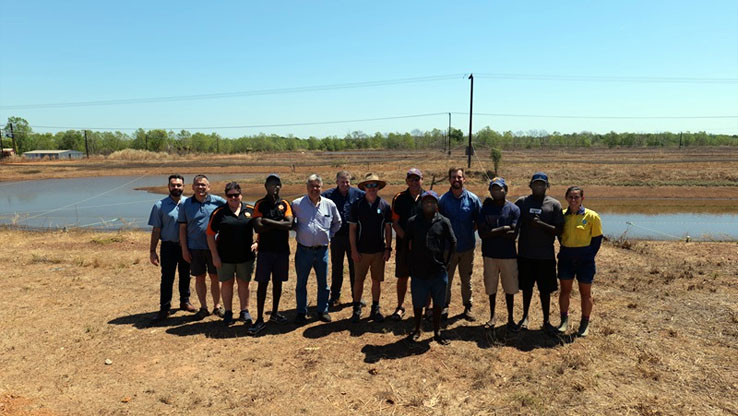Exclusive content

In collaboration with Tiwi Resources and the Portaminni Trust, CSIRO, among the world’s largest and most diverse scientific research organisations, is making strides in advancing a prawn farm pilot project aimed at fostering a more sustainable future for the Tiwi Islands. Recognizing the untapped potential for sustainable prawn farming in Northern Australia, this cooperative effort employs a co-design model, ensuring that all partners collaboratively shape the pilot to chart a path toward sustainability for the Tiwi Islands.
CSIRO’s Indigenous Science and Engagement Program played a crucial role in facilitating engagement and leveraging resources through collaboration with the Northern Steering Committee. This collaboration provided an additional cultural lens for the CSIRO and allowed Traditional Owners and other stakeholders to visit Vietnam, gaining insights from the successful prawn farming industry in the region.
The co-design approach not only respects Indigenous perspectives but also addresses the specific needs and goals of the Tiwi Islands community. By gaining a better understanding and context through this model, research findings can be more effectively applied and tailored to the unique conditions of Northern Australia.
Tiwi Resources, representing the eight land-owning groups on the Tiwi Islands, has been deeply involved in every aspect of the prawn farming pilot, ensuring that planning and execution are developed in close consultation with the community. The support from the Tiwi community underscores the approach’s alignment with their way of life, traditions, and aspirations, combining modern scientific methods with sustainable aquaculture practices.
A pivotal aspect of the project involved a knowledge-exchange trip to Ca Mau in southern Vietnam, renowned for its world-class prawn farming. This two-way exchange involved Indigenous community leaders, researchers, and stakeholders visiting Vietnamese prawn farms, fostering international collaboration and strengthening the capacity of Northern Australian communities to enhance their sustainable prawn farming practices.
The research trip covered various crucial aspects of prawn farming, including prawn health, farming techniques, environmental considerations (specifically mangrove and rice combinations), prawn population size, water quality issues, licensing, managing disease, and survival rates. The hope is that the pilot farm on Bathurst Island will harness the abundance of marine worms and other organisms in the mangroves to naturally feed the prawns.
Now entering its third year, the project is seeking funding to establish and run the pilot farm on Wurankuwu, Bathurst Island. Comprising six one-hectare ponds, the pilot aims to address economic viability and community readiness on the island. If successful, the pilot farm will transition into a commercial enterprise.